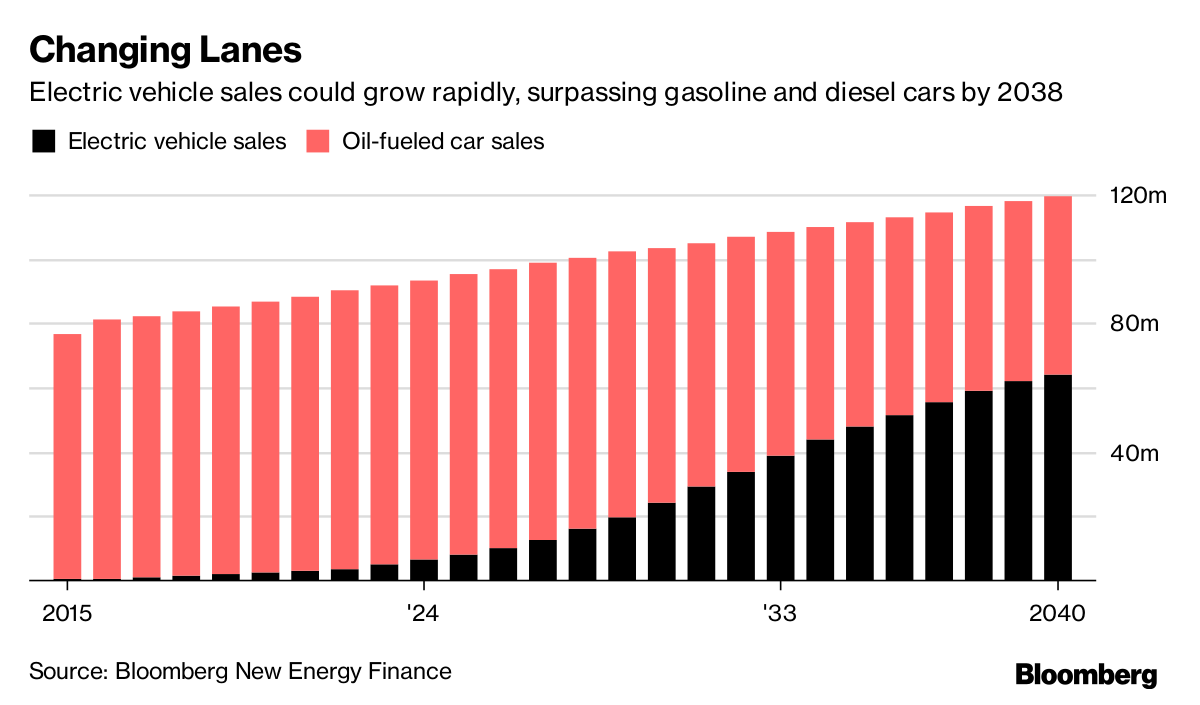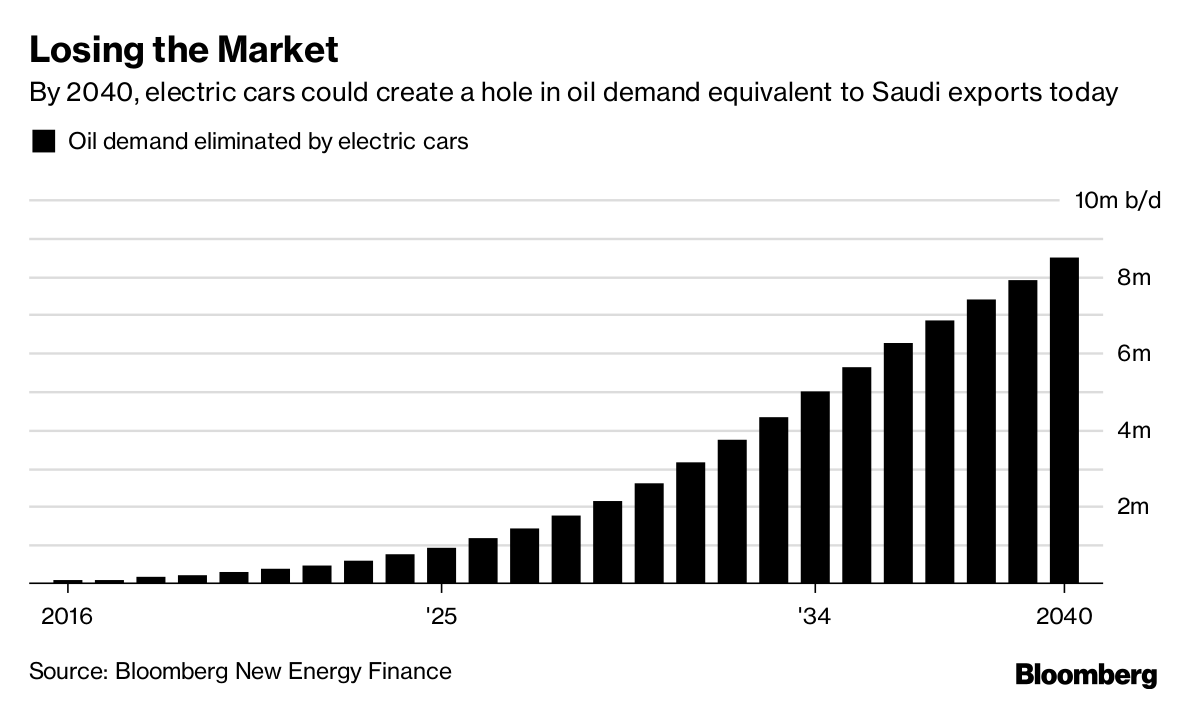It’s been 10 years since Apple Inc. unleashed a surge of innovation that upended the mobile phone industry. Electric cars, with a little help from ride-hailing and self-driving technology, could be about to pull the same trick on Big Oil.
The rise of Tesla Inc. and its rivals could be turbo charged by complementary services from Uber Technologies Inc. and Alphabet Inc.’s Waymo unit, just as the iPhone rode the app economy and fast mobile internet to decimate mobile phone giants like Nokia Oyj.
The culmination of these technologies — autonomous electric cars available on demand — could transform how people travel and confound predictions that battery-powered vehicles will have a limited impact on oil demand in the coming decades.
“Electric cars on their own may not add up to much,” David Eyton, head of technology at London-based oil giant BP Plc, said in an interview. “But when you add in car sharing, ride pooling, the numbers can get significantly greater.”
Most forecasters see the shift away from oil in transport as an incremental process guided by slow improvements in the cost and capacity of batteries and progressive tightening of emissions standards. But big economic shifts are rarely that straightforward, said Tim Harford, the economist behind a book and BBC radio series on historic innovations that disrupted the economy.

Systemic Change
“These things are a lot more complicated,” he said. Rather than electric motors gradually replacing internal combustion engines within the existing model, there’s probably going to be “some degree of systemic change.”
That’s what happened 10 years ago. The iPhone didn’t just offer people a new way to make phone calls; it created an entirely new economy for multibillion-dollar companies like Angry Birds maker Rovio Entertainment Oy or WhatsApp Inc. The fundamental nature of the mobile phone business changed and incumbents like Nokia and BlackBerry Ltd. were replaced by Apple and makers of Android handsets like Samsung Electronics Co. Ltd.
Today, as Elon Musk’s Tesla and established automakers like General Motors Co. are striving to make their electric cars desirable consumer products, companies like Uber and Lyft Inc. are turning transport into an on-demand service and Waymo is testing fully autonomous vehicles on the streets of California and Arizona.

Combine all three, for example through an Alphabet investment in Lyft, and you have a new model of transport as a service that would be a cheap compelling alternative to traditional car ownership, according to RethinkX, a think tank that analyzes technology-driven disruption.








